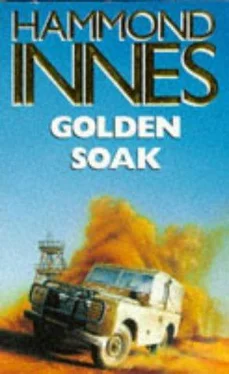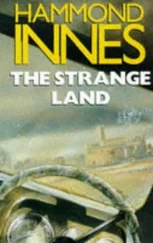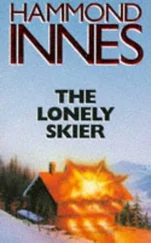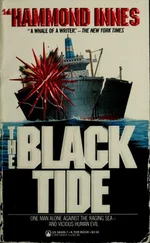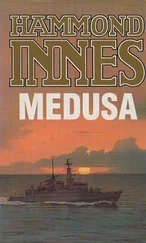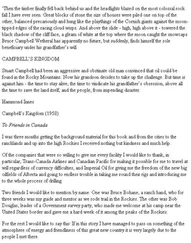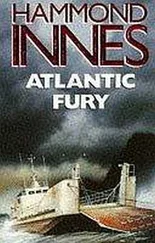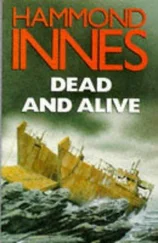Hammond Innes - Golden Soak
Здесь есть возможность читать онлайн «Hammond Innes - Golden Soak» весь текст электронной книги совершенно бесплатно (целиком полную версию без сокращений). В некоторых случаях можно слушать аудио, скачать через торрент в формате fb2 и присутствует краткое содержание. Жанр: Прочие приключения, на английском языке. Описание произведения, (предисловие) а так же отзывы посетителей доступны на портале библиотеки ЛибКат.
- Название:Golden Soak
- Автор:
- Жанр:
- Год:неизвестен
- ISBN:нет данных
- Рейтинг книги:3 / 5. Голосов: 1
-
Избранное:Добавить в избранное
- Отзывы:
-
Ваша оценка:
- 60
- 1
- 2
- 3
- 4
- 5
Golden Soak: краткое содержание, описание и аннотация
Предлагаем к чтению аннотацию, описание, краткое содержание или предисловие (зависит от того, что написал сам автор книги «Golden Soak»). Если вы не нашли необходимую информацию о книге — напишите в комментариях, мы постараемся отыскать её.
Golden Soak — читать онлайн бесплатно полную книгу (весь текст) целиком
Ниже представлен текст книги, разбитый по страницам. Система сохранения места последней прочитанной страницы, позволяет с удобством читать онлайн бесплатно книгу «Golden Soak», без необходимости каждый раз заново искать на чём Вы остановились. Поставьте закладку, и сможете в любой момент перейти на страницу, на которой закончили чтение.
Интервал:
Закладка:
She took me over and introduced me. ‘Her name’s Cleo. Suits her don’t you think?’ She was laughing, her hand in the animal’s mouth, between its huge yellowing teeth. ‘She loves having the roof of her mouth tickled.’ The long neck stretched, the strange reptilian head lifted in ecstasy. ‘Beaut, isn’t she?’
‘Where did you get her?’ I asked.
‘Why here — on the station.’ She was bending down, brushing the flies away from its eyes. ‘We’ve got at least five or six hundred roaming the place. Wild — like the brumbies. But she isn’t wild. I’ve had her since she was a baby. We’ve grown up together, haven’t we, Cleo?’ The supercilious head turned, the pale amber eyes staring distantly as though searching some dimly remembered desert horizon. There was a deep rumbling, the noise exploding in a belch that blew a bubble of foam from its lips. ‘She hasn’t moved since we left this morning. I wish I could stay motionless like that for hours on end.’ She straightened up, her sweat-stained shirt moulded to the swelling line of her breasts, and wiped her hand on her trousers. ‘Come on in where it’s cooler and I’ll get you a drink. What would you like?’
‘Tea,’ I said, ‘if there is any?’
‘Yes, tea of course. It’s what we mostly drink anyway.’
She led me through between two buildings, past an old hand-operated petrol pump and a wooden barn containing an elderly Morris Oxford tourer and the remains of a model-T. And at the side of the house itself there was a sort of patio of quartz slabs half-buried in red dust. There was a sundial in the centre of it, the bronze plaque set on a great block of stone, the white of the quartz shot through with reddish ochre, so that it looked like marble. Around the edges of the patio were the pitiful vestiges of a flower border. A deck chair stood forlornly, the canvas hanging bleached and rotted from the starved wood frame.
The house was a single-storey building with a verandah facing south across what had once been a lawn. It was built partly of reddish stone, partly of wood, and was separate from the kitchen and domestic quarters. She swept a beaded curtain aside and we were in the gap between the two buildings. It was walled off like a tent, with ragged hessian stretched over a double layer of wire mesh that was packed with fibrous vegetation. It was roughly furnished with cane chairs and a scrubbed wooden table. ‘Come on in. We practically live here during the summer,’
‘Ingenious,’ I said, and she nodded.
‘Yes, it is, isn’t it. It’s a design based on the Coolgardie safe in which the old-timers of the gold rush kept their food. The outback station owners adapted it for their own purposes and called it the Bough Shed — I suppose because it was a pretty rough job in the early days, rather like the humpies the aborigines build for shelter. Up here in the Pilbara we call it the cool house.’ She smiled at me. ‘I guess it’s a bit hotter here, that’s why Cool sounds nice. I’m sorry the sprinklers aren’t working, and there’s no breeze today. Phew!’ She made a face. ‘Expect you’d like a wash. I know I would.’
Tom brought my suitcase in and she told me where to go, along a dim passage — ‘The second door on the left, and your room’s at the end.’ It was a single room, the shutters closed over the fresh windows and an air of spartan masculinity. The bathroom was almost as big. It was panelled in patterned zinc sheets painted green, the bath rust-stained, the enamel peeling, and the wood of the lavatory seat bare of varnish, the glued sections beginning to pull apart. The bathroom was a museum piece, the product of Golden Soak in its heyday, I thought as I stripped off with a trickle of water running brown and tepid. Refreshed, I had a shave, put on a clean shirt and went back to the cool house. It was empty except for the Alsatian bitch, who stared at me, hackles raised, but made no move as I seated myself in one of the cane chairs.
I could see the glare outside through the hessian and the wire mesh and furze walls, the room itself dim and relatively cool, the slightest current of air funnelling through the gap between the buildings. An aboriginal girl came in with a tray of tea, silent on bare feet, her cotton dress hanging like a shift. Her big brown eyes darted at me, shy as a wild thing, and then she was gone.
I poured myself some tea and drank it scalding hot, feeling relaxed and at ease, savouring the atmosphere of the place, the sense of continuity. There was a bookcase against the wall to my right. I lit a cigarette and sat staring at the titles. Old editions of Kipling, Galsworthy, Shaw, Forrester’s African Queen, Shute’s A Town Like Alice, Henry Handel Richardson, George Johnston’s My Brother Jack, a battered Shakespeare, Poe, an anthology of Coleridge’s poems, Morris West. It was a window into the personalities of three generations of Garretys. And in a lower shelf there was a row of. books on mining.
The Alsatian got up from her guard post by the entrance, her ears pricked. Then she was gone and I heard the sound of an engine, outside in the glare. I poured myself another cup of tea. Hoover’s Principles of Mining. It was an old book. Presumably it had belonged to the first Garrety, purchased when he began to operate the mine. Truscott’s Mine Economics was more recent. The Alsatian’s barking ceased abruptly and the silence of the bush crept into the room again. Chamber’s Encyclopaedia and the Oxford Dictionary filled the bottom shelf. I pulled out the battered, much-thumbed Shakespeare, glanced at the flyleaf — For Bill: This is the best companion I ever had. Take it with you — and my blessing too. It was signed: Your loving father, and underneath, in the same careful faded hand, was written: Emerald Downs, 9th March, 1897.
I sat back, the book open on my lap, smoking and thinking of the man who had settled here seventy years ago, who had discovered the mine and built this house. And all the time this Shakespeare with him, a gift from his father. It surprised me to discover that Big Bill Garrety must have been an educated man. And he had passed his love of good books on to his son, and he presumably to his children. Had Janet any brothers, I wondered? I couldn’t remember her mentioning a brother.
I was still thinking about this when I became uneasily aware of a presence in the room. I turned slowly and looked over my shoulder. A figure stood framed in the rectangle of the entrance, dark against the glare from the patio. He didn’t say anything, just stood there, motionless, staring at me. His stillness was very strange. I put the book down on the table and got to my feet. ‘Mr Garrety?’
For a moment I thought he hadn’t heard. But then his head moved, a slight inclination. ‘You’re Alec Falls, are you?’ He had a slow, very deliberate way of speaking. ‘I thought for a moment…’ He pushed his hand up through his iron-grey hair and then came slowly towards me. He was a big man with bushy eyebrows, the eyes themselves of a startling blue, slightly prominent. ‘The way you were sitting — and that book…. My father’s Shakespeare, isn’t it? Henry was very fond of that book.’ He shook my hand and waved me back to my seat. ‘Is that tea you’ve got there? Goodo.’
He poured himself a cup, added three spoonfuls of sugar and stirred it vigorously. ‘I would have stayed to welcome you, of course, but the month’s supplies came up from Perth yesterday. We have an arrangement with some people on the Highway. Aah! That’s better.’ And then, as though at a loss for conversation, he added, ‘Hot today. Very hot. No wind, y’know.’ Like his daughter, he had a strangely old-fashioned way of speaking.
He sat himself down and for the first time I saw his face clearly. It was dark like old leather, the skin dried and creased by the sun, but a bloodless, almost sick look, with lines of care etched deep and the lips a thin, compressed line. It was a stern, uncompromising face, yet somehow touched by sadness as though the outback hardness was a sneer concealing an inner sensitivity. Perhaps it was because the eyes were hooded now, the eyelids drooped in their dark sockets, but I had a strange impression of vulnerability.
Читать дальшеИнтервал:
Закладка:
Похожие книги на «Golden Soak»
Представляем Вашему вниманию похожие книги на «Golden Soak» списком для выбора. Мы отобрали схожую по названию и смыслу литературу в надежде предоставить читателям больше вариантов отыскать новые, интересные, ещё непрочитанные произведения.
Обсуждение, отзывы о книге «Golden Soak» и просто собственные мнения читателей. Оставьте ваши комментарии, напишите, что Вы думаете о произведении, его смысле или главных героях. Укажите что конкретно понравилось, а что нет, и почему Вы так считаете.
